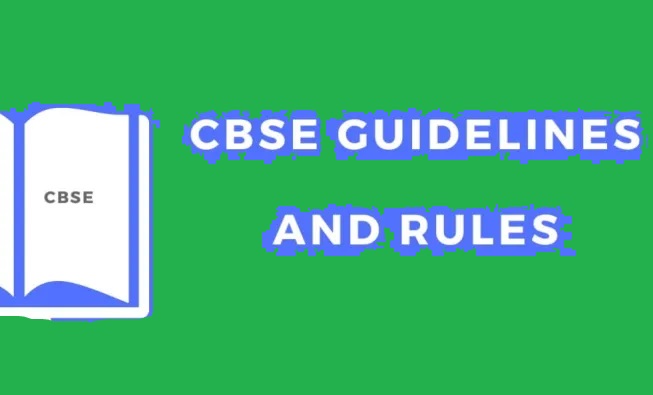- Curriculum:
- The CBSE prescribes the curriculum for schools affiliated with it. Schools are expected to follow the NCERT (National Council of Educational Research and Training) curriculum for various classes.
- Regular updates and revisions are made to the curriculum to ensure relevance and alignment with educational standards.
- Examinations:
- CBSE conducts board examinations for classes 10 and 12.
- Guidelines for examination patterns, question paper formats, and evaluation processes are provided.
- Continuous and Comprehensive Evaluation (CCE) system is often emphasized, incorporating both formative and summative assessments.
- Affiliation Norms:
- Schools seeking affiliation with CBSE must adhere to specific norms and standards regarding infrastructure, faculty qualifications, and facilities.
- The affiliation process involves scrutiny to ensure schools meet the prescribed criteria.
- Teacher Training:
- Guidelines may include provisions for regular teacher training programs to enhance teaching skills.
- Encouraging the use of modern teaching methods, technology, and innovative pedagogical approaches.
- Inclusive Education:
- Emphasis on creating an inclusive education environment that accommodates students with diverse learning needs.
- Guidelines for providing necessary support systems and facilities for differently-abled students.
- Sports and Extracurricular Activities:
- Encouragement for schools to actively participate in sports and extracurricular activities.
- Guidelines on organizing inter-school competitions, sports meets, and cultural events.
- Student Assessment and Promotion:
- Clear guidelines on the assessment of students throughout the academic year.
- Criteria for promotion to the next class and the role of continuous evaluation.
- Safety and Security:
- Strict guidelines regarding the safety and security of students within the school premises.
- Measures to prevent and address issues like bullying and harassment.
- Code of Conduct:
- Schools are expected to maintain a code of conduct for both students and teachers.
- Guidelines for disciplinary actions in case of violations.
- Examinations and Results:
- Procedures for conducting examinations, including the use of standardized question papers and the timely declaration of results.
Remember, these are general aspects and might not cover the latest updates. For the most recent and accurate information, always refer to the official CBSE website or contact CBSE directly.
